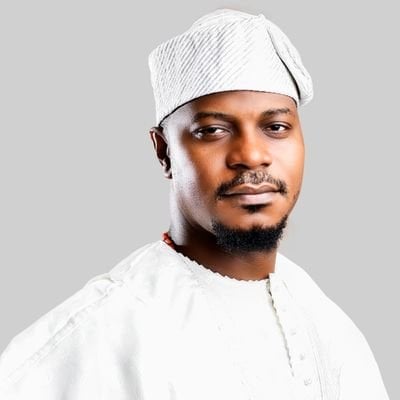Gbadebo Rhodes-Vivour, a prominent figure in Lagos politics, discusses his shift from the Labour Party (LP) to the African Democratic Congress (ADC) and his vision for the future of Nigerian politics. He clarifies that his move is not a departure from the LP but rather a strategic alignment with a coalition aimed at uniting opposition forces against the ruling All Progressives Congress (APC). Rhodes-Vivour emphasizes the need for a united opposition to challenge the APC’s hold on power, citing the combined voting power of previous opposition candidates as a potential path to victory in future elections. He believes a strong coalition is crucial to effectively address the needs of the Nigerian people and advocate for meaningful change. This coalition strategy, according to Rhodes-Vivour, allows him to maintain his political alignment with influential figures like Peter Obi, while simultaneously working within a broader framework to achieve shared goals.
Rhodes-Vivour acknowledges the challenges faced by the LP, particularly internal divisions and structural weaknesses that hindered its ability to capitalize on the momentum gained during the 2023 elections. He attributes the party’s relative success in the previous elections to the grassroots support for Peter Obi, highlighting the role of ordinary Nigerians who yearned for change. Rhodes-Vivour also points to the ambiguities arising from the Supreme Court judgment on the LP leadership tussle, further complicating the party’s ability to present a united front. He contrasts his consistent presence in the opposition with the trend of young politicians switching allegiances to the ruling party for personal gain, emphasizing his commitment to challenging the status quo. This steadfast opposition, he argues, demonstrates his dedication to fighting for the interests of the people, even if it means remaining outside the corridors of power.
Addressing allegations of tribalism, Rhodes-Vivour dismisses them as deliberate attempts to distract from the real issues plaguing Lagos State. He acknowledges a past misstep in an interview where he stated he didn’t “think in Yoruba,” attributing it to a momentary loss of composure. He clarifies his intention was to address the plight of marginalized youth, and regrets how his words were manipulated to create division. Rhodes-Vivour criticizes the APC for employing propaganda tactics to divert attention from their failures in governance. He argues that focusing on ethnic differences prevents the public from uniting and demanding accountability from their leaders. The “Lagos is a no-man’s land” debate, according to Rhodes-Vivour, is another manufactured controversy designed to sow discord. He asserts that Lagos has a rich history and a distinct identity, belonging to its indigenous people while acknowledging the contributions of other Nigerians to the state’s development.
Rhodes-Vivour’s use of the historical figure “Afonja” to describe President Tinubu stems from his belief that Tinubu prioritizes personal ambition over the well-being of the Yoruba people. He cites historical parallels to illustrate Tinubu’s alleged willingness to compromise the interests of his people for political gain. This comparison, he explains, is not meant to denigrate Yoruba heritage but to critique Tinubu’s leadership style. He emphasizes the need for leaders to prioritize the welfare of their constituents, referencing historical and contemporary examples where Tinubu allegedly remained silent on crucial issues affecting the Yoruba community. Rhodes-Vivour calls on the youth to transcend ethnic divisions and focus on the pressing issues affecting Lagos, such as inadequate infrastructure, lack of access to clean water, and extravagant spending by the state government. He believes the APC’s reliance on divisive tactics indicates a fear of a united populace demanding accountability. He urges young people to see through these distractions and hold their leaders responsible for delivering effective governance.
Rhodes-Vivour believes the opposition has already demonstrated its strength by defeating Tinubu in Lagos in the previous election. He emphasizes the need for better organization at the grassroots level, including preparing for potential violence and intimidation tactics employed by the ruling party. He argues that the APC’s resort to violence is a sign of their insecurity and failure to deliver on their promises. He contrasts this with a hypothetical scenario where a well-performing government would be confident in its record and not need to resort to such tactics. Rhodes-Vivour criticizes the APC’s governance in Lagos, arguing that the state’s historical wealth and entrepreneurial spirit are undermined by poor leadership that treats the people as subjects rather than constituents. He criticizes what he sees as a culture of entitlement and a lack of accountability within the ruling party.
On the national stage, Rhodes-Vivour criticizes the current administration’s handling of the economy, citing rising living costs and hardship faced by ordinary Nigerians. He argues that the government’s policies have failed to alleviate the suffering of the people and questions the sincerity of their economic strategies. He analyzes the CNG policy as a well-intentioned initiative that has not translated into tangible benefits for the average citizen. Rhodes-Vivour expresses optimism about the ADC’s chances in future elections, emphasizing the shift from party-centric politics to a focus on individual personalities. He believes this trend benefits the ADC, as it allows voters to connect directly with candidates and their vision. He discusses the potential return of former President Goodluck Jonathan, noting the sentiment favoring a southern president after years of northern leadership. He acknowledges Jonathan’s appeal but also raises concerns about his eligibility and the potential legal challenges he might face given the current political and judicial landscape.


